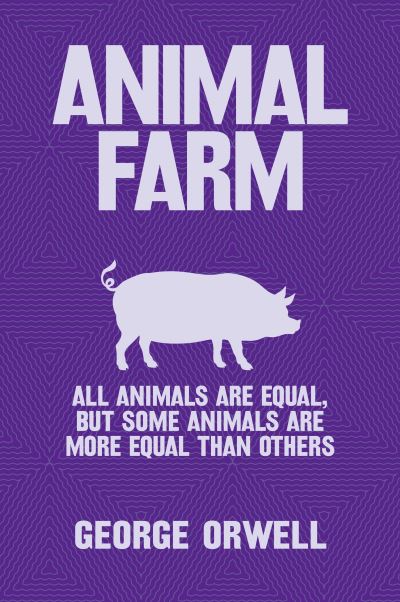Animal Farm Synopsis
Considered a classic of 20th century English literature Animal Farm is George Orwell's satire on the Russian Revolution of 1917 and Stalin's subsequent rule.
It tells the story of the animals of Manor Farm, as they rise up against the drunken farmer Mr Jones and the ensuing leadership battle between two pigs, Snowball and Napoleon. They set in motion their 'system of thought', Animalism, a clear play on Communism, with seven tenets including, 'All animals are equal but some animals are more equal than others.'
This wonderful hardback edition features a dust jacket and stunning graphic cover design, making a perfect gift or collectible for any lover of modern classics.
ABOUT THE SERIES: Arcturus Silhouette Classics are high-quality hardback editions with contemporary cover-designs. Presented with dust jackets and beautiful colour end-papers, the titles in this series make wonderful gifts or collectibles for any classic literature lover.
About This Edition
About George Orwell
Eric Arthur Blair (George Orwell) was born in 1903 in India, where his father worked for the Civil Service. The family moved to England in 1907 and in 1917 Orwell entered Eton, where he contributed regularly to the various college magazines. From 1922 to 1927 he served with the Indian Imperial Police in Burma, an experience that inspired his first novel, Burmese Days (1934). Several years of poverty followed. He lived in Paris for two years before returning to England, where he worked successively as a private tutor, schoolteacher and bookshop assistant, and contributed reviews and articles to a number of periodicals. Down and Out in Paris and London was published in 1933. In 1936 he was commissioned by Victor Gollancz to visit areas of mass unemployment in Lancashire and Yorkshire, and The Road to Wigan Pier (1937) is a powerful description of the poverty he saw there. At the end of 1936 Orwell went to Spain to fight for the Republicans and was wounded. Homage to Catalonia is his account of the civil war. He was admitted to a sanatorium in 1938 and from then on was never fully fit. He spent six months in Morocco and there wrote Coming Up for Air. During the Second World War he served in the Home Guard and worked for the BBC Eastern Service from 1941 to 1943. As literary editor of the Tribune he contributed a regular page of political and literary commentary, and he also wrote for the Observer and later for the Manchester Evening News. His unique political allegory, Animal Farm was published in 1945, and it was this novel, together with Nineteen Eighty-Four (1949), which brought him world-wide fame.
George Orwell died in London in January 1950. A few days before, Desmond MacCarthy had sent him a message of greeting in which he wrote: ‘You have made an indelible mark on English literature . . . you are among the few memorable writers of your generation.’
More About George Orwell
